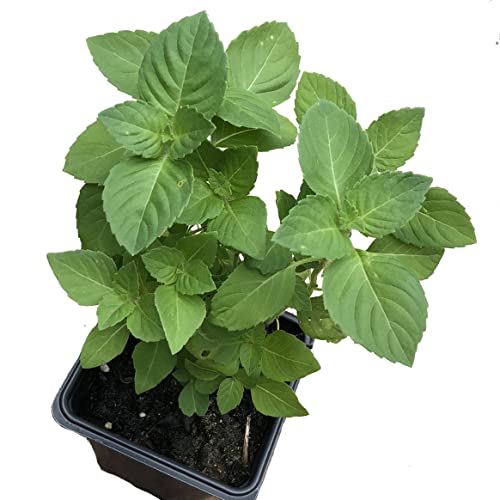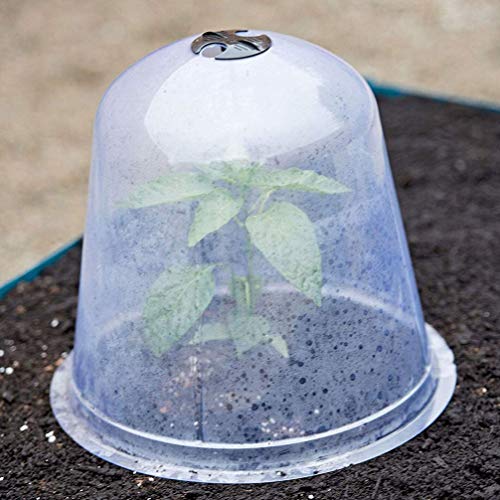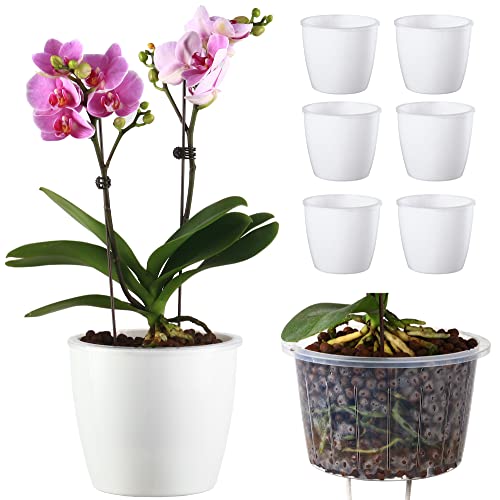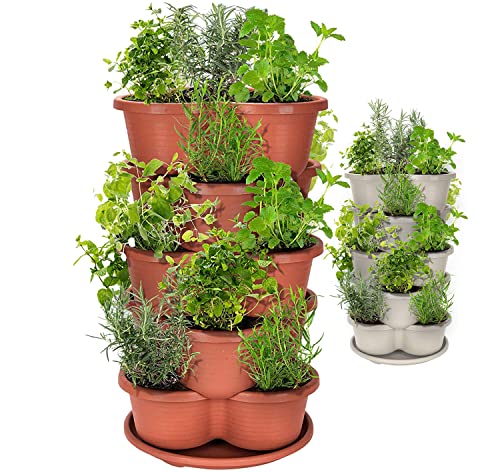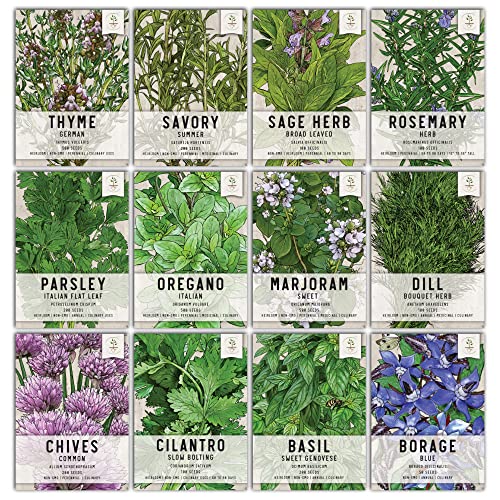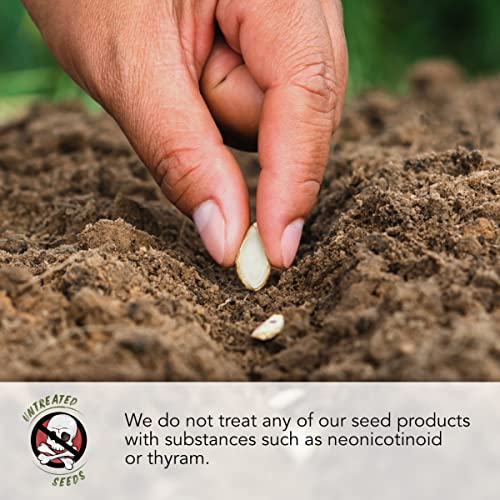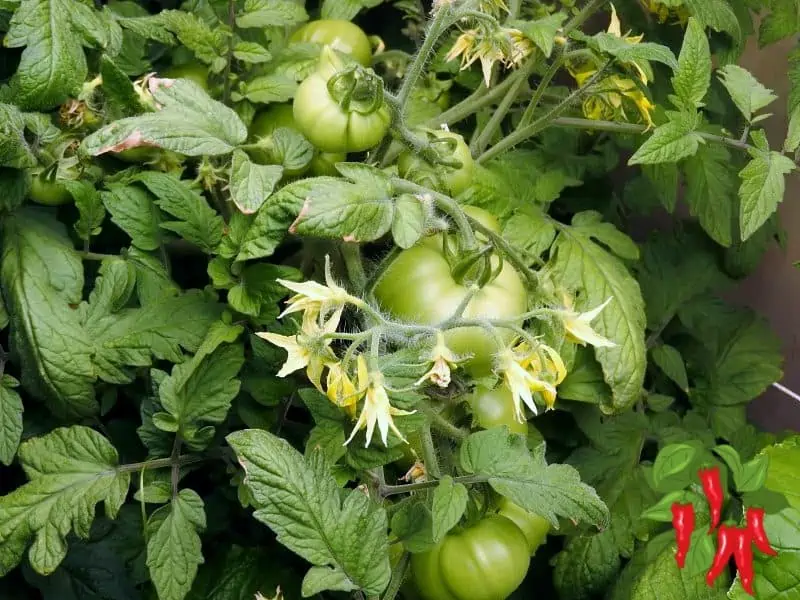This post may contain affiliate links. If you buy something from one of our links we may earn a commission. Thanks

Discover the magic of balcony herb gardens. Transform your space into a fragrant oasis, just like a cozy countryside retreat in the heart of the city!
Balcony herb gardens are compact green spaces tailored for urban settings. They allow individuals to grow a variety of herbs, like basil, mint, and rosemary, even in limited spaces. Easily maintained, these gardens bring freshness and nature to city homes, offering both aesthetic and culinary benefits. They’re perfect for those who desire home-grown flavors without a backyard.
Key Takeaway:
- Growing herbs on a balcony offers a fresh approach to cultivating your own culinary plants. It provides easy access to fresh herbs and brings a touch of nature into your living space.
- There are several benefits to having a balcony herb garden, including the ease of growing and quick harvesting. With the right herbs, you can easily maintain a supply of aromatic and flavorful ingredients for your cooking.
- Choosing the right herbs for your balcony herb garden is crucial. Consider growing a mix of annual herbs like basil, dill, and cilantro for continuous harvest and perennial herbs like lavender and rosemary for long-lasting greenery.
- When it comes to pots, small containers and plastic bottles are suitable for balcony herb gardens. Vertical gardens and hanging baskets can maximize space, while DIY options and herb and salad cloches offer creative alternatives.
- Proper planting and care are essential for healthy herbs on the balcony. Whether using transplants or starting from seeds, following a step-by-step guide to planting your herbs will ensure success. Providing winter care and protection is also important.
- Ensure your herbs thrive by finding the best position on your balcony, whether it’s full sun or partial shade. Proper watering, avoiding dry or waterlogged soil, and minimal fertilizer application will help maintain healthy herbs. Regular pinching and trimming will promote fuller plant growth.
- By following these steps, you can enjoy the fresh flavors and aromas of herbs grown on your balcony. Having a balcony herb garden offers convenience, sustainability, and a rewarding gardening experience.
A Balcony Herb Garden – A Fresh Approach to Growing Your Own Herbs
Ever thought of bringing a touch of the countryside to your urban dwelling? Balcony herb gardens are the answer!
Imagine sipping your morning coffee surrounded by the aroma of fresh basil, mint, and rosemary.
It’s like having a miniature farm right outside your window, making city living feel a touch greener and fresher. Dive in and discover how to create this little paradise on your own.
In this article, we explore the concept of a balcony herb garden that offers a fresh and innovative approach to cultivating your own herbs.
By utilizing the limited space of a balcony, individuals can create a practical and sustainable herb garden, minimizing the need for purchasing store-bought herbs.
By embracing the idea of a balcony herb garden, individuals can enjoy fresh and flavorful herbs all year round.
This unique approach brings nature closer to urban dwellers, providing a convenient solution for those with limited gardening space.
With careful planning and proper maintenance, a balcony herb garden can thrive and enhance both the aesthetics and functionality of any outdoor space.
Within this article, we will delve deeper into the various benefits of having a balcony herb garden as well as explore different techniques and creative ideas for its implementation.
By utilizing vertical gardening techniques, selecting suitable herb varieties, and incorporating proper irrigation systems, individuals can maximize their balcony space for herb cultivation.
Additionally, this article will provide valuable suggestions for maintaining and caring for a balcony herb garden.
Tips for pest control, proper harvesting methods, and how to ensure optimal growth conditions will all be covered.
Furthermore, we will also explain the science behind the benefits of growing your own herbs and how it can positively impact your health and well-being.
Benefits of Growing Herbs on a Balcony
When it comes to cultivating a balcony herb garden, the benefits are abundant. Not only does it allow me to easily grow a variety of herbs, but it also offers the convenience of quick harvests right outside my door.
With limited space and time constraints, it’s important to maximize the yield from my herb garden.
In this section, I will delve into the ease and speed with which herbs can be grown on a balcony, allowing me to enjoy fresh and flavorful ingredients at a moment’s notice.
Easy to Grow and Quick to Harvest
Growing herbs on a balcony is a convenient and efficient way to cultivate your own fresh herbs.
They are low-maintenance and require minimal effort, making them an easy choice for beginners.
With their rapid growth rate, you can quickly harvest herbs whenever needed.
A variety of annual and perennial herbs can thrive in a balcony herb garden. Popular choices include basil, fennel, dill, coriander or cilantro, marjoram, parsley, and chives as annuals.
Perennial options include oregano, lavender, sage, thyme, mint, bay leaves, curry leaves, and rosemary. Each herb has its own unique flavors and uses in cooking.
When selecting pots for your balcony herb garden, consider using small pots or repurposed plastic bottles if you have limited space.
Vertical gardens and hanging baskets are also great options for maximizing space. If you enjoy DIY projects, you can create your own pots using various materials such as terracotta or recycled containers.
Using a herb and salad cloche can also protect your plants from extreme weather conditions.
To start growing your herbs on the balcony, you have the option of purchasing transplant seedlings or starting from seeds.
Both methods are effective but have different time requirements.
Transplanting provides quicker access to mature plants while starting from seeds allowing you to witness the entire growth process.
Finding the best position for your herbs is crucial for their success. Most herbs thrive in full sun or partial shade conditions depending on their specific needs.
When it comes to watering your herbs, it’s essential to maintain a balance between dryness and waterlogging.
Overwatering can lead to root rot while underwatering results in stunted growth.
Herbs generally require minimal fertilizer as they are not heavy feeders.
However, it’s recommended to use organic fertilizers or compost occasionally to promote healthy growth.
To keep your plants compact and encourage bushier growth, pinching and trimming are necessary. Regularly remove dead or yellow leaves, and pinch off the tips of branches to stimulate lateral growth.
Choosing herbs for your balcony garden is like assembling a team of aromatic superheroes – Basil, Fennel, Dill, Coriander, Marjoram, Parsley, and Chives – ready to spice up your life!
Choosing the Right Herbs for Your Balcony Herb Garden
When it comes to creating a vibrant balcony herb garden, selecting the right herbs is crucial.
You want to ensure that the herbs you choose not only thrive in the limited space but also provide a delightful array of flavors and aromas.
In this section, I’ll guide you through the process of choosing the perfect herbs for your balcony herb garden.
We’ll explore both annual herbs such as basil and parsley, known for their fresh and versatile qualities, as well as perennial herbs like lavender and thyme, which offer long-lasting beauty and enduring culinary value.
Let’s dive in and discover the herbaceous delights that await us.
Annual Herbs: Basil, Fennel, Dill, Coriander or Cilantro, Marjoram, Parsley, and Chives
Growing annual herbs such as basil, fennel, dill, coriander or cilantro, marjoram, parsley, and chives on your balcony can provide a fresh and aromatic addition to your culinary repertoire.
These herbs are easy to grow and quick to harvest, making them an ideal choice for balcony gardens.
- Basil: Known for its distinct flavor and versatility in various cuisines.
- Fennel: Adds a subtle licorice flavor to dishes.
- Dill: Commonly used in pickling and seafood dishes.
- Coriander or Cilantro: Offers a unique citrusy taste and is popular in Mexican and Asian cuisine.
- Marjoram: Adds a sweet and floral aroma to dishes.
- Parsley: Known for its bright green color and mild flavor, often used as a garnish.
- Chives: Delicate onion-like flavor that enhances various dishes.
These herbs can be grown in small pots or plastic bottles, vertical gardens, hanging baskets, or even DIY pot options like using an herb and salad cloche.
By following a step-by-step guide to planting these herbs on your balcony and providing proper care such as finding the best position with full sun or partial shade, watering appropriately, minimal fertilizing, pinching, and trimming for fuller plants.
Incorporating annual herbs like basil, fennel, dill, coriander or cilantro, marjoram, parsley, and chives in your balcony herb garden provides an opportunity to enjoy fresh flavors throughout the year.
Keeping perennial herbs on your balcony not only adds flavor to your cooking but also increases your chances of surviving a zombie apocalypse. Tou’ll be the envy of the neighborhood!
Perennial Herbs: Oregano, Lavender, Sage, Thyme, Mint, Bay Leaves, Curry Leaves, and Rosemary
Perennial Herbs such as Oregano, Lavender, Sage, Thyme, Mint, Bay Leaves, Curry Leaves, and Rosemary are a valuable addition to any herb garden.
These herbs offer a range of flavors and aromas that can enhance various culinary dishes. They are known for their hardiness and ability to thrive year after year.
- Oregano: Adds a robust and earthy flavor to Mediterranean dishes.
- Lavender: Known for its soothing aroma and is often used in teas and desserts.
- Sage: Provides a warm and savory flavor, perfect for poultry dishes.
- Thyme: Offers a subtle yet distinct taste that complements many recipes.
- Mint: Offers a refreshing and cooling flavor that pairs well with both sweet and savory dishes.
- Bay Leaves: Add a fragrant and slightly floral note to soups, stews, and sauces.
- Curry Leaves: Commonly used in Indian cuisine for their aromatic and citrus-like flavor.
- Rosemary: Known for its pine-like aroma and is often used in roasts and marinades.
These perennial herbs are not only versatile in the kitchen but also require minimal care.
They can withstand different weather conditions and will continue to grow throughout the year.
Incorporate these herbs into your balcony garden for a fresh supply of flavorful ingredients.
Pro Tip: When harvesting perennial herbs like oregano or thyme, remember to trim them from the top rather than cutting the entire stem.
This allows the plant to continue growing new leaves while providing you with an ongoing supply of fresh herbs.
No garden? No problem! These pots are perfect for your balcony oasis.
Selecting the Right Pot for Your Balcony Herb Garden
When it comes to creating a thriving balcony herb garden, the choice of pots can make a significant difference.
Each option carries its own set of advantages and considerations. Let’s dive into the various options available, such as small pots and plastic bottles, which offer cost-effective and space-saving solutions.
We’ll also explore vertical gardens and hanging baskets that maximize vertical space.
Additionally, we’ll discuss the DIY pot options for those with a creative streak. Lastly, we’ll learn about the benefits of using a herb and salad cloche to protect delicate plants.
With the right pot selection, your balcony herb garden will flourish with fresh greens and flavors.
Small Pots and Plastic Bottles
Small containers and plastic bottles can be used for planting herbs on your balcony, providing an efficient and cost-effective method.
– They are space-saving options, perfect for balconies with limited space.
– Plastic bottles can be repurposed and turned into DIY pots, reducing waste.
– Small pots and plastic bottles are lightweight and easily portable, allowing you to move them around as needed.
– These containers provide good drainage for the herbs, preventing waterlogged soil.
– They are affordable options for beginners or those on a tight budget.
For a creative twist, consider using small pots and plastic bottles in your balcony herb garden.
They offer versatility, affordability, and convenience while minimizing waste. Additionally, they provide sufficient space for the roots to grow and allow proper drainage for healthy herb growth. So why not give it a try?
Self Watering Planters
Ever had a plant wilt because life got too busy and watering slipped your mind? Enter the world of self-watering planters!
These ingenious containers take the guesswork out of plant care, ensuring your green buddies get just the right amount of moisture.
Just like a trusty neighbor watering your plants while you’re away, these planters keep your greens thriving.
Take your gardening to new heights with vertical gardens and hanging baskets – a sure way to elevate both your plants and your apartment’s curb appeal.
Vertical Gardens and Hanging Baskets
• Maximize Space: Vertical gardens allow you to make the most of your limited balcony area by utilizing vertical wall space.
Hanging baskets, on the other hand, provide a convenient way to suspend herb plants, freeing up valuable floor space.
• Enhance Visual Appeal: By incorporating vertical gardens and hanging baskets into your balcony herb garden, you can create a stunning display that adds texture and dimension to your outdoor space. This not only beautifies your balcony but also creates a soothing environment.
• Easy Access: With herbs planted in hanging baskets or positioned vertically, harvesting becomes effortless.
You can simply reach out and pluck fresh herbs whenever needed without having to bend down or rummage through densely packed garden beds.
Investing in vertical gardens and hanging baskets for your balcony herb garden allows you to maximize the use of limited space, create an aesthetically pleasing display, and enjoy easy access to fresh herbs whenever desired.
Don’t miss out on the opportunity to transform your balcony into a thriving herb haven with vertical gardens and hanging baskets.
Explore these innovative gardening methods today and experience the joy of fresh herbs just a few steps away from your kitchen!
Get creative with your pots and cloches, because there’s nothing more satisfying than growing your own herbs with a side of DIY flair.
DIY Pot Options and Using a Herb and Salad Cloche
When it comes to DIY pot options and using a herb and salad cloche for your balcony herb garden, there are several practical solutions available. These options allow you to customize your pots and provide protection for your herbs.
Below is a table highlighting some of the DIY pot options and the benefits of using a herb and salad cloche:
| Pot Options | Benefits |
|---|---|
| Upcycled containers | Environmentally friendly |
| Hanging baskets | Maximizes space |
| Vertical gardens | Adds vertical dimension |
| Herb and salad cloche | Provides protection from elements |
In addition to the pot options mentioned above, there are other details worth noting.
For example, upcycled containers such as plastic bottles can be transformed into small pots for your herbs. This promotes sustainability by reducing waste.
Now, let’s move on to an interesting story related to this topic. One person who used a DIY pot option and an herb and salad cloche was able to successfully grow a variety of herbs on their balcony.
They repurposed old mason jars as pots and used a glass cloche as protection during colder months. This creative approach not only added visual appeal to their balcony but also provided fresh herbs all year round.
Planting and caring for herbs on the balcony: where murder becomes an acceptable hobby.
Planting and Caring for Your Herbs on the Balcony
When it comes to planting and caring for your herbs on the balcony, there are a few key aspects to consider.
Whether you’re getting herb transplants or starting from seeds, understanding the right approach can make all the difference in ensuring the success of your balcony herb garden.
Additionally, knowing how to provide winter care and protection for your herbs is essential for their long-term survival.
In this step-by-step guide, I’ll walk you through the process of planting your herbs, offering tips and techniques to help you create a thriving balcony herb garden.
Getting Herb Transplants or Starting from Seeds
When it comes to starting your own herb garden, you have two options: obtaining herb transplants or starting from seeds.
Herb transplants are young plants that have already been started and can be directly planted into your balcony garden.
On the other hand, starting from seeds involves planting the seeds and nurturing them until they develop into seedlings.
Both methods have their advantages, depending on your preferences and gardening experience.
If you choose to get herb transplants for your balcony herb garden, you will save time and effort as these young plants are already well-rooted and established.
This means you can enjoy fresh herbs sooner without having to wait for the seeds to germinate and grow.
Herb transplants also provide a higher level of certainty in terms of plant quality, as you can select healthy and sturdy plants from a reputable nursery.
On the other hand, starting from seeds allows you to have more variety in herb selection. It gives you the freedom to experiment with different types of herbs that may not be available as transplants in nurseries.
Starting from seeds also gives you a sense of accomplishment as you witness the entire growth process, from germination to maturity.
Moreover, growing herbs from seeds is usually less expensive compared to buying pre-grown transplants.
To ensure successful seed germination, it is important to follow the instructions provided on the seed packets regarding planting depth, watering frequency, temperature requirements, and sunlight exposure.
Starting from seeds requires consistent care and attention until the seedlings are ready to be transplanted into individual pots or containers.
Pro Tip: Whether you choose herb transplants or starting from seeds, make sure to provide proper care by providing adequate water, sunlight, and nutrition for healthy growth.
Keeping your herbs cozy in winter is like giving them a warm hug, just without the emotional attachment.
Winter Care and Protection
During the winter months, it is essential to provide adequate care and protection for your herbs to ensure their survival. Here are four key points to follow for winter care and protection:
• Adequate insulation: Wrap the pots of your herbs with burlap or bubble wrap to protect them from frost and extreme temperature changes.
• Water sparingly: Reduce watering frequency during winter as plants require less water in cold weather. Overwatering can lead to root rot and other diseases.
• Provide shelter: Move potted herbs closer to buildings or walls where they can benefit from radiated heat and be protected from strong winds.
• Consider indoor cultivation: If the winters are harsh in your area, it might be better to bring your potted herbs indoors or provide them with a greenhouse environment.
In addition to these points, make sure not to place your herb pots directly on a cold surface, as this can damage the roots.
Instead, use saucers or pot feet to elevate the pots slightly. By following these guidelines, you can ensure that your balcony herb garden survives the winter and thrives when spring arrives.
Historically, people have been practicing winter care and protection for their plants since ancient times.
They used various methods like mulching with straw or leaves, covering with cloths or plastic sheets, and even building temporary greenhouses.
These techniques were developed through trial and error over generations and have proven effective in safeguarding plants during harsh winters.
Planting your herbs is like creating your own tiny herb kingdom, where you’re the ruler and the delicious flavors are your loyal subjects.
Step-by-Step Guide to Planting Your Herbs
When it comes to planting your herbs on the balcony, having a step-by-step guide is essential.
This informative and formal article will provide you with all the necessary information to successfully plant your herbs and enjoy a thriving balcony herb garden.
1. Start by selecting the right herbs for your balcony herb garden. Choose from a variety of annual herbs such as basil, fennel, dill, coriander or cilantro, marjoram, parsley, and chives.
Alternatively, you can opt for perennial herbs like oregano, lavender, sage, thyme, mint, bay leaves, curry leaves, and rosemary.
2. Once you have chosen your herbs, it’s time to select the right pot for your balcony herb garden.
Consider using small pots or plastic bottles if space is limited.
Vertical gardens and hanging baskets are also great options for maximizing space on your balcony.
You can even get creative with DIY pot options or use a herb and salad cloche to protect your plants.
3. Now that you have your herbs and pots ready, it’s time to plant them on your balcony.
Whether you choose to start from seeds or get herb transplants is entirely up to you. Follow our step-by-step guide to planting your herbs:
• Prepare the potting soil by mixing equal parts of garden soil,
• Dig small holes in the soil according to the size of each herb transplant or seed,
• Carefully place each herb transplant/seed into its designated hole,
• Gently press down the soil around each plant/seed to ensure they are secure,
• Water the newly planted herbs thoroughly and place them in a spot where they can receive either full sun or partial shade depending on their requirements.
In caring for your herbs on the balcony:
• Regularly check the moisture level of the soil to avoid dryness or waterlogging,
• Use minimal fertilizer as most herbs don’t require heavy feeding,
• Pinch and trim the herbs to promote fuller growth,
• During winter, provide adequate care and protection to ensure the survival of your herbs.
Pro Tip: Consider creating a herb garden layout plan to maximize space and ensure proper placement of each herb based on their sunlight requirements.
This will help you create an organized and visually pleasing balcony herb garden.
Keeping your herbs alive on your balcony is like having a green thumb, a balcony-sized chiropractor, and a personal therapist all in one.
Caring for Your Herbs on the Balcony
When it comes to caring for your herbs on the balcony, there are several important factors to consider.
One essential aspect is finding the best position for your plants, whether it’s full sun or partial shade.
This choice can have a significant impact on their growth and overall health.
Additionally, proper watering is crucial to prevent the soil from becoming either too dry or waterlogged.
Understanding the right balance is key. Furthermore, fertilizing your balcony herbs requires a minimal amount of fertilizer, ensuring they receive the necessary nutrients without overdoing it.
Lastly, pinching and trimming your herbs play a role in encouraging fuller and healthier plants.
Finding the Best Position: Full Sun or Partial Shade
When it comes to locating the perfect spot for your balcony herb garden, you must consider whether full sun or partial shade is ideal.
The amount of sunlight your herbs receive will affect their growth and overall health.
Certain herbs thrive in full sun, such as basil, rosemary, and mint. These herbs require at least 6 to 8 hours of direct sunlight per day to flourish.
On the other hand, there are herbs that prefer partial shade, such as parsley and chives. These herbs can tolerate some shade and need around 4 to 6 hours of direct sunlight daily.
It is important to find the right balance between sunlight and shade when positioning your herbs on the balcony.
By understanding the specific requirements of each herb, you can create an environment that promotes healthy growth and ensures a bountiful harvest.
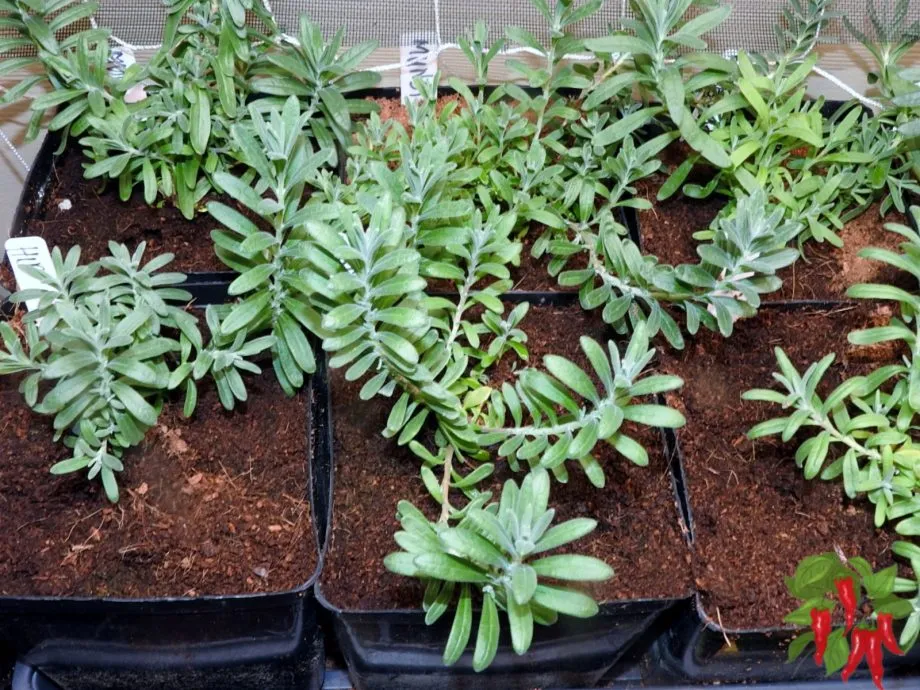
Did you know that certain perennial herbs like lavender and oregano prefer full sun but can also tolerate some shade?
This makes them versatile options for balconies with varying levels of sunlight throughout the day.
It is recommended to observe the sunlight patterns on your balcony before deciding where to place your herbs.
By carefully considering the needs of your plants and finding the best position for them based on their light requirements, you will set yourself up for a successful balcony herb garden.
So go ahead and start enjoying fresh flavors from your own little green space!
Keep your herbs thirsty but not drowning, because soggy soil is a recipe for herb-icide.
Watering: Avoiding Dry or Waterlogged Soil
Maintaining the right soil moisture is crucial for the health and growth of your herbs in a balcony herb garden.
By effectively managing watering practices, you can avoid both dry and waterlogged soil, ensuring optimal conditions for your plants.
1. Monitor Soil Moisture Levels: Regularly check the moisture level of the soil before watering your herbs.
Stick your finger about an inch deep into the soil to assess its moisture content. If it feels dry, it’s time to water.
2. Watering with Care: When watering your herbs, ensure that you do not overwater or allow water to accumulate excessively in the pots.
Use a gentle stream of water or a watering can with a fine nozzle to evenly distribute water across the pots.
3. Proper Drainage System: Adequate drainage is essential to prevent waterlogging and root rot.
Choose pots with drainage holes at the bottom or consider using potting containers that come with built-in drainage systems.
4. Watering Schedule: Create a regular watering schedule based on the specific needs of each herb.
While some herbs may require more frequent watering, others may prefer drier conditions. Observe your plants closely and adjust your watering routine accordingly.
It is important to note that every herb has different water requirements, and maintaining proper moisture levels is essential for their overall well-being.
By following these steps, you can ensure that your balcony herb garden thrives while avoiding dryness or excessive moisture in the soil.
Remember, providing adequate hydration to your potted herbs will help them flourish and offer you an abundant supply of fresh flavors for all your culinary creations!
Don’t miss out on the joy of savoring homegrown herbs by neglecting their watering needs.
Save your money and skip the fertilizer, because these herbs are the self-sufficient rebels of the green world.
Consider using self-watering planters if you have a busy schedule.
Fertilizing: Minimal Fertilizer Required
Fertilizing: Optimal Fertilization Techniques for Herb Growth
To promote healthy growth in your balcony herb garden, it is essential to provide the right amount of fertilizer.
Here are three key points to keep in mind regarding fertilizing in your herb garden:
Organic Options: Using organic fertilizers such as compost or fish emulsion can effectively nourish your herbs without introducing harmful chemicals into the environment.
- Balanced Nutrition: Herbs generally require minimal fertilizer compared to other plants. Applying a slow-release, balanced fertilizer once every few weeks during the growing season ensures that they receive adequate nutrients without being overwhelmed by excessive feeding.
- Avoid Overfeeding: Overfertilization can lead to lush foliage but reduced flavor in your herbs. It’s crucial to follow the recommended dosage instructions and refrain from applying more fertilizer than necessary.
In addition to these points, remember that each herb has its own nutrient requirements and may benefit from specific types of fertilizers or amendments.
Understanding the needs of individual herbs will help tailor your fertilizing routine accordingly.
Pro Tip: Test your soil periodically using a pH testing kit to ensure that it remains within the optimal range for herb growth.
Adjusting soil pH can maximize nutrient availability and absorption by your herbs.
Pruning your herbs – the horticultural equivalent of giving them a haircut.
Pinching and Trimming for Fuller Plants
Pinching and Trimming for Luscious Plants
The process of pinching and trimming is essential for promoting fuller and more vibrant growth in your plants.
By strategically removing the top portion of the herb’s stems, you encourage lateral branching and bushier foliage.
This technique not only enhances the visual appeal of your balcony herb garden but also increases the overall yield of aromatic herbs.
Here is a simple 4-step guide to help you master the art of pinching and trimming for fuller plants:
1. Identify the right time: Wait until your herb plant has reached a height of at least 6 inches before attempting to pinch or trim it.
This allows the plant to establish a strong root system and ensures that it can withstand the stress caused by pruning.
2. Choose the right tools: Make sure to use clean, sharp shears or scissors to prevent unnecessary damage to the plant.
Disinfecting your cutting tools with rubbing alcohol before each use reduces the risk of spreading diseases among different plants.
3. Know where to pinch or trim: Locate nodes, which are points on the stem where leaves emerge.
To promote lateral growth, gently pinch off or trim just above a node, leaving approximately a quarter-inch stub above it.
Avoid cutting too close to the base as this may harm the plant’s growth.
4. Maintain regularity: Regularly repeat this pinching and trimming process every few weeks throughout the growing season.
By doing so, you prevent herbs from becoming woody and leggy while stimulating fresh growth from lower nodes.
By following these steps, you can effectively maintain lush and healthy herbs in your balcony garden without much effort.
In addition, remember that different herbs require specific care when it comes to pinching and trimming for maximum fullness.
For instance, with delicate herbs like basil, light pinching is sufficient, whereas more robust herbs like rosemary can handle more extensive pruning.
Familiarize yourself with each herb’s individual needs to ensure optimal results.
A seasoned gardener, Sarah, once struggled with limp and underwhelming herbs in her balcony garden.
However, after incorporating regular pinching and trimming into her routine, she witnessed a remarkable transformation in her plants.
The once scraggly basil plants became bushy and full, providing her with an abundant supply of fragrant leaves for culinary delights.
Now, Sarah enjoys the wonderful benefits of lush and thriving herbs from her very own balcony herb garden.
Conclusion: Enjoying Fresh Herbs from Your Balcony Herb Garden
Enjoying Fresh Herbs from Your Balcony Herb Garden
Growing a balcony herb garden allows you to savor the taste of freshly picked herbs right outside your door.
Here are four key benefits of cultivating an herb garden on your balcony:
- Accessibility: With herbs just steps away, you can easily add a burst of flavor to your dishes without having to travel to the store.
- Health Benefits: Fresh herbs are packed with nutrients and antioxidants that can enhance the nutritional value of your meals and contribute to overall well-being.
- Cost Savings: Growing your own herbs can help you save money in the long run by reducing the need to purchase expensive store-bought herbs.
- Aesthetics: A balcony herb garden adds a touch of greenery and beauty to your outdoor space, creating a tranquil and inviting atmosphere.
In addition, balcony herb gardens offer the opportunity to experiment with different herb varieties based on your culinary preferences and gardening skills.
By taking advantage of the unique microclimate on your balcony, you can create an optimal environment for your herbs to thrive.
Consider incorporating aromatic herbs like basil, mint, and rosemary for a delightful sensory experience.
To make the most of your balcony herb garden, here are some suggestions:
1. Proper Drainage: Ensure that your herb pots have adequate drainage to prevent water from pooling and causing root rot. This can be achieved by using containers with drainage holes or adding a layer of gravel at the bottom.
2. Adequate Sunlight: Most herbs thrive in full sun, so place your pots in a sunny spot on your balcony where they can receive at least 6 hours of direct sunlight each day.
3. Regular Watering: Herbs generally require consistent moisture, so water them regularly, ensuring that the soil is moist but not waterlogged. Avoid overwatering, as this can lead to root rot.
4. Pruning and Harvesting: Regular pruning and harvesting of herbs promote bushier growth and prevent them from becoming leggy. Pinch off the tips of the plants to encourage branching and harvest the leaves as needed for your culinary endeavors.
By following these suggestions, you can enjoy a bountiful supply of fresh, flavorful herbs from your balcony herb garden throughout the year.
So go ahead, embark on this delightful gardening adventure and elevate your culinary creations with the unmatched taste of homegrown herbs.
Five Facts About Balcony Herb Gardens: A Fresh Approach
- ✅ Herbs are easy to grow and take up less space, making them perfect for balcony gardens.
- ✅ The best herbs to grow are the ones you like and cook with most often.
- ✅ Common annual herbs for balcony gardens include basil, fennel, dill, coriander, marjoram, parsley, and chives.
- ✅ Perennial herbs like oregano, lavender, sage, thyme, mint, bay leaves, curry leaves, and rosemary are also great options for balcony gardens.
- ✅ Balcony herb gardens require the right planter choice, such as railing planters, hanging baskets, grow bags, or window boxes, depending on the size of your balcony. (Source: Team Research)
FAQs about Balcony Herb Gardens: A Fresh Approach
Question 1: Can I grow a herb garden on my small balcony or patio?
Answer: Yes, you can definitely grow a herb garden on your small balcony or patio. The best thing about herbs is that they take up less space and are easy to grow, making them suitable for small outdoor areas.
Question 2: What are the best herbs to grow on a windowsill or porch?
Answer: Some of the best herbs to grow on a windowsill or porch include basil, fennel, dill, coriander or cilantro, marjoram, parsley, chives, oregano, lavender, sage, thyme, mint, bay leaves, curry leaves, and rosemary. These herbs are commonly used in cooking and are easy to cultivate.
Question 3: How do I choose the right pot for growing herbs on my balcony?
Answer: When selecting a pot for your balcony herb garden, you can choose from options such as railing planters, hanging baskets, grow bags, standard pots, buckets, vertical planters, and window boxes.
The choice of the pot depends on the size of your balcony and your personal preferences. If you’re feeling creative, you can even DIY your own pots.
Question 4: What is a cloche, and why should I use it for my balcony herb garden?
Answer: A cloche is a glass cover that protects plants from harsh weather conditions like frost during winter.
Using a cloche in your herb garden can help protect your herbs and promote stronger root systems in seedlings. It ensures year-round herb growth, regardless of the weather.
Question 5: Where can I get herb transplants for my balcony herb garden?
Answer: You can get herb transplants from a nearby nursery or a garden center. If you don’t have the time to sow seeds, purchasing transplants is a convenient option.
Additionally, you may consider buying a small greenhouse to care for your plants during winter or making your own if you live in a warm tropical climate.
Question 6: How should I care for my herbs in a balcony herb garden?
Answer: To care for your herbs in a balcony herb garden, ensure they receive sufficient sunlight. Most herbs grow best in full sun or partial shade.
Water your herbs regularly, but be mindful of not overwatering or letting the soil dry out completely.
Fertilize your herbs sparingly, using a balanced liquid fertilizer once every 2-3 weeks.
Regularly pinch and trim your herbs to promote fuller growth and ensure fresh leaves for culinary purposes.
Visit my Amazon Influencer Page for videos and gardening products Grow Your Own Garden

